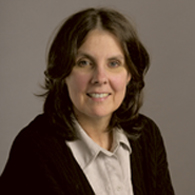The Politics of Plagiarism
Carol Jenkins talks about cheating at SED conference Friday

A search for “plagiarism” on Boston University’s home page leads to more than 1,000 diverse entries — definitions of the term from the University’s schools and colleges, information on plagiarism-detection software, and research guides on how to avoid plagiarizing. With the number of plagiarism cases on the rise throughout academia, and students and faculty walking an intertextual tightrope, Carol Jenkins, an associate professor in the School of Education, began looking for early-intervention practices — or new ways to explain the concept of plagiarism to elementary school students.
Jenkins is among the speakers at Boston University’s Center for the Advancement of Ethics and Character (CAEC) Spring Institute, titled The Ethic of Caring, being held April 12 and 13. Her talk, Plagiarism: A Matter of Ethics and Caring, is on Friday, April 13, at 9 a.m. at the School of Management.
BU Today talked to Jenkins about the sticky subject of plagiarism and how it relates to the virtue of caring.
BU Today: What is plagiarism?
Jenkins: The Modern Language Association’s definition says plagiarism involves two kinds of wrongs. Using another person’s ideas, information, or expressions without acknowledging that person’s work constitutes intellectual theft. Passing off another person’s ideas, information, or expressions as your own to get a better grade or gain some other advantage constitutes fraud. Plagiarism is sometimes a moral and ethical offense rather than a legal one, since some instances of plagiarism fall outside the scope of copyright infringement.
Do you think more people are cheating, or are we just getting better at catching plagiarism?
To tell you the truth, I’m really not sure. There just seems to be so much of it, and you have some of the postmodernists and feminists like Debora Halbert, who said in Richard Posner’s The Little Book of Plagiarism: “For the feminist and the postmodernist, appropriations of plagiarism are acts of sedition against an already established mode of knowing, a way of knowing indebted to male creation and property rights.” So I think there is sort of this moral relativity going on.
So then is there some sort of repositioning of our understanding of borrowing from other authors?
I think that’s some of it. You have the deconstructionists, like Foucault and Roland Barthes, who basically say there is no such thing as an author because it’s just a matter of tracing these intertextual links, that we’ve got to stop thinking of people as authors because nobody says anything that hasn’t been said before. It’s just wonderfully complicated and perplexing for students and for all writers.
Is it fair to say that part of the problem in understanding plagiarism is that there isn’t a clear definition of what plagiarism is?
That is definitely part of the problem. For example, some definitions deal with the issue of intentionality. If there was no intention to deceive, then we shouldn’t call it plagiarism. Or if you know that a work is a clear parody, then you can’t charge plagiarism. And then The Little Book of Plagiarism adds on the idea of copyright infringement, which is different.
What led you to your work on plagiarism?
My research in working with a group of third graders. When we were writing nonfiction reports, we talked about what writers do when they put reports together, and one of the things they do is they don’t copy — they have to say it in their own words unless they use quotation marks. As these kids were writing their reports, they had conferences with me every day. They would bring what they wrote, and I would see plagiarized page after plagiarized page. It was just so fascinating to see that these kids absolutely don’t know what we’re talking about when we say, “Don’t copy.” Plus, these kids can’t write nonfiction unless they know their subject matter well, and so, as teachers, we have to do a lot of topic immersion.
How does plagiarism relate to the virtue of caring?
We are in a moral dilemma immediately when the charge of plagiarism is levied, and when we see what’s happening, obviously we have to get to that next step even though teacher’s guides and textbooks really don’t deal with this issue. But because it is such an ethical dilemma, and charges are being levied against elementary school kids, middle school kids, and high school kids, the concept of caring means we have to move ourselves into that next stage of reflection and figure out a course of action so that we can help these kids determine what’s legitimate and what’s not legitimate.
How are you going to open your presentation?
I’m going to start with the Helen Keller case, where, at age 11, she supposedly wrote a story on her Braille slate to Michael Anagnos, who was the director of the Perkins School for the Blind. He was enchanted with the story and published it in the trustee report. It was picked up by an affiliated newspaper, published as a piece that was unparalleled in literature, and of course within a week, the plagiarism charge came in. Even a century later, we still do not do a good job of helping young writers understand this concept of plagiarism.
Nicole Laskowski can be reached at nicolel@bu.edu.